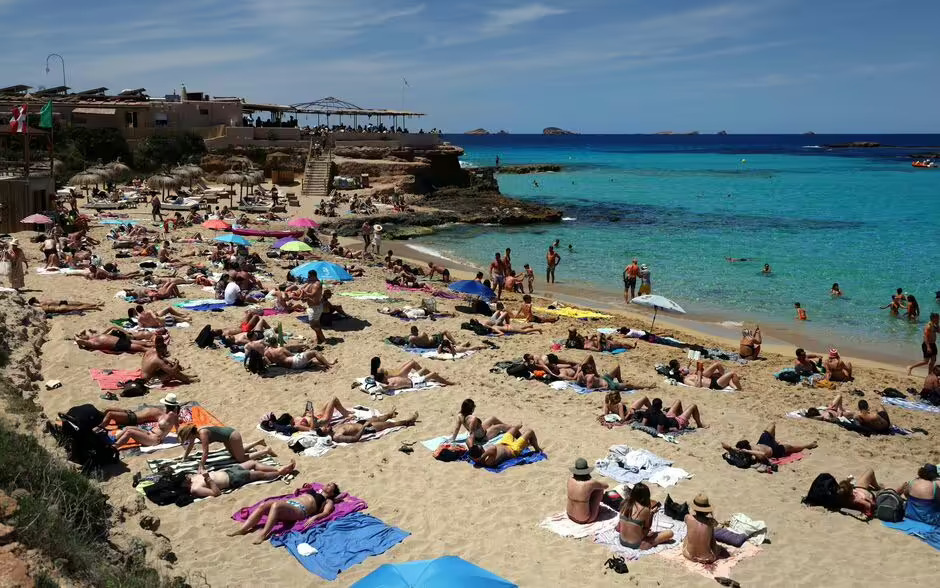Spain’s popular holiday islands are facing growing pressure as thousands of migrants continue to arrive by boat almost every day. Officials in Majorca, Ibiza, and Tenerife say they are overwhelmed, with locals reaching their “wits end” and rebelling against the situation. Videos shared online have shown boats landing directly on busy beaches, with shocked holidaymakers looking on.
According to local authorities, more than 4,700 people have arrived on the shores of Majorca, Ibiza, and Formentera this summer alone. Most of the migrants are from Algeria, with 1,500 arriving in August so far. The Balearic Islands are now described as the “main gateway” for migrants entering Europe, raising fears that some could later move on to other countries, including the UK.
The south coast of Mallorca has also become known as a “graveyard” for abandoned boats, which litter the coastline and cause environmental damage. Islanders who work at sea complain that the wrecks are left behind without clear responsibility for disposal. One local resident described it as a “double tragedy – both human and environmental – happening in silence.”
Balearic President Marga Prohens has called the rise in arrivals “alarming” and warned that local facilities are beyond capacity. Camps for unaccompanied migrant children are now running at more than 1,000 percent over their limits. So far, the Balearic Islands have taken in 680 migrant children, while the Canary Islands are looking after more than 5,600. Officials warn the situation is unsustainable.
The Spanish government recently ruled that the Balearics must accept migrant minors, but Prohens is appealing the decision at the Supreme Court. She insists the islands cannot provide safe and dignified conditions and says Madrid must take greater responsibility. “The situation is getting worse every day, and there is no sign of a solution,” she explained.
Island leaders are now demanding more resources, including filling 600 vacancies in the state security force. They also want to engage in stronger diplomatic talks with Algeria to try to slow the flow of arrivals. Meanwhile, the Canary Islands remain another major hotspot, with more than 11,800 migrants reaching its coasts so far this year. Local leaders there have also urged the government to declare a national emergency.
There are also growing concerns about security risks. A report from Frontex, the EU’s border agency, has warned that people with potentially harmful intentions may be entering Europe through these small boats. Prohens says this shows that Ibiza and Formentera cannot “face a crisis of this magnitude alone.”
Ibiza’s president Vicent Marí added that the constant rise in arrivals has drained resources. He said the region has already spent around €3 million to manage the crisis, and staff working in care facilities are now suffering from exhaustion. The pressure on both island communities and holiday resorts is fueling fears that the crisis could escalate further if urgent action is not taken.

